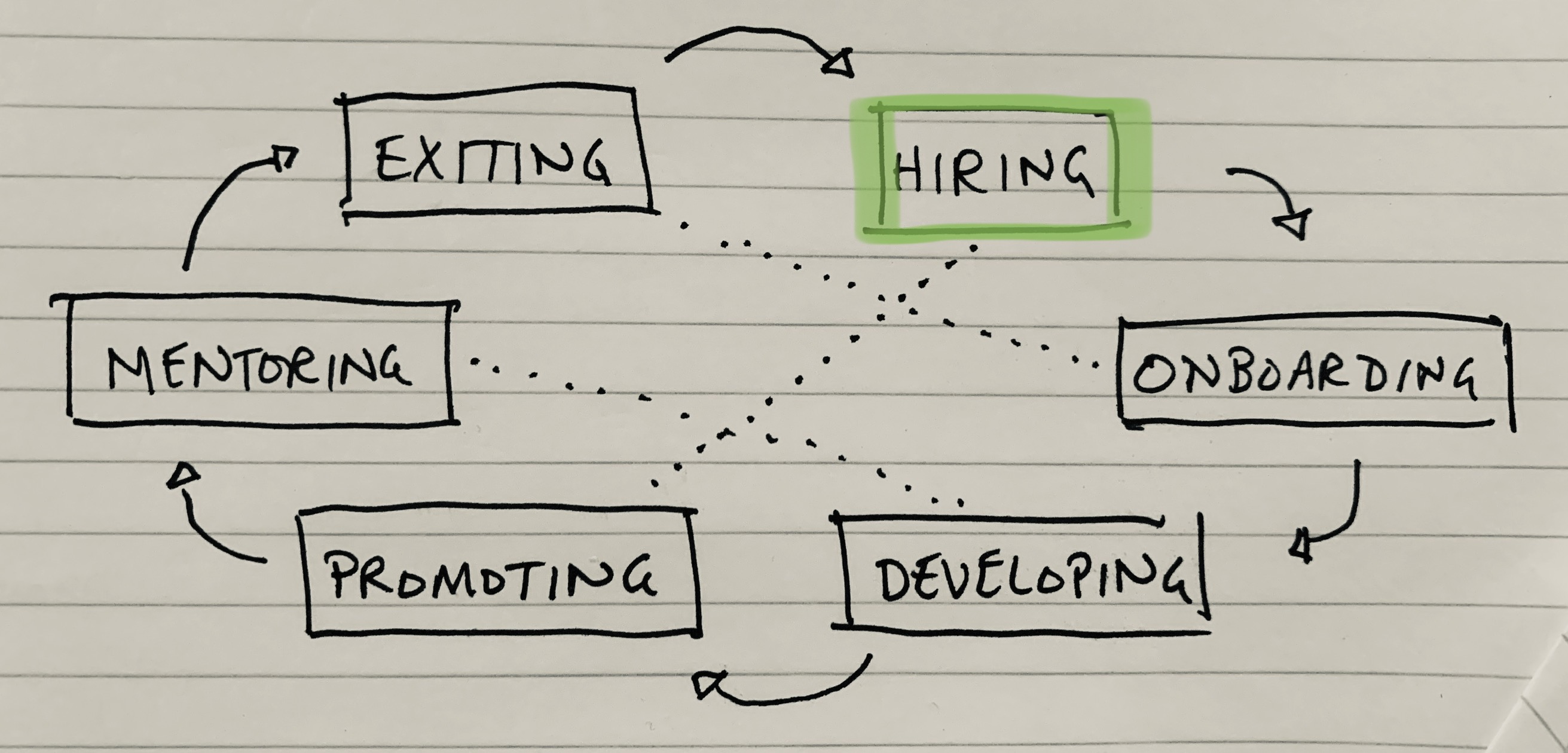
The hiring arena is where every employee first experiences your Growth Culture. To succeed in this arena you must calibrate your teams around roles and souls, clearly introduce the Growth Culture to prospective employees, and optimize for “stretch” in every role.
Refine Your Hiring Process
There is no higher leverage activity than hiring someone. The outcomes of this process will reverberate across the agency for years. Yet most people at your agency deal with the hiring process no more than a few times a year.
How do you master something you only do once or twice a year?
You start by writing it down. Document your process. Make a hiring manual. Then when the hiring process is upon you, pull out that document and you won’t have to reinvent the wheel.
It may seem wonk-ish to document the hiring process. But remember, hiring is high leverage. It's a decision that is very difficult and costly to reverse. If a good process increases your chances of making the right decision, then it’s worth an hour or two to document the process.
Also, hiring usually involves many people (or it should!) A well-documented process helps coordinate everyone and set expectations.
Finally, it gives you an artifact for improving the process. After every new hire, hold a simple retrospective with everyone involved. Ask what worked, where you got stuck, and what you might try differently next time… then update the hiring process document.
If this suggestion seems simple or obvious, you're right! Which is why it’s often overlooked, and why hiring processes are often inconsistent and defective.
Hiring Is Team Calibration
It's common practice for a candidate to interview with members of their potential new team. Do those team members understand the role… or will the candidate get conflicting descriptions? Do they know what they're looking for in a candidate… or will they each be using different criteria? Hiring is an opportunity to get the team on the same page about the purpose and function of a role and what the team needs.
To start, have the whole team review the role description. Comment on where things are unclear, out of date, or need improvement. Those who have had this role before can add their experience. Those who work with this role can focus on the kind of collaboration they need.
The team can divide and conquer the interview process. Each team member can focus on some subset of the role and really dig into it with the candidate. If the team uses the same role description, they'll speak consistently about it with candidates. After the interviews, hold a retrospective with the team to compare notes. Each person can share what was learned and compare it across that common framework for the role.
Now you’ve taken an important and urgent event (hiring someone) and used it to address an important but non-urgent need (team calibration). The outcome should be better team alignment and a shared sense of purpose.
Look For Stretch
No one wants a job. They want a journey.
If you hire the "perfect candidate" who's a master at every aspect of the role, there's not much of a journey for them. They're going to get bored. And bored people quit.
The perfect candidate is imperfect. They can't quite do the role in its entirety. Some aspects of the role should be just out of reach right now. You want some stretch. And it's that stretch that gives the role meaning.
You’re not hiring a specific set of skills so much as you're hiring a learning curve. If the curve is too steep, they fail. If the curve is too flat, they get bored. You’re looking for that goldilocks learning curve: just steep enough to keep them engaged while they develop themselves into a more valuable professional at your agency.
So look for the journey each candidate wants to go on. Can this position can provide it?
Sell The Journey
As you hone in on the learning curve a candidate wants, sell it to them.
Hiring is where you start to establish culture. It's where you let people know “the way we do things around here.” And in a Growth Culture, developing yourself is a regular part of life. The candidate should know that. They should want that. A Growth Culture is like catnip for great talent.
If the candidate doesn't want to grow, that's a huge red flag. His value won't increase over time. And his complacency will poison the Growth Culture you’ve worked so hard to build.
Discuss the Growth Culture with the candidate. Talk about your own journey within the agency. Let him know that growth is expected and the team has regular activities for developing each other.
And talk about the role after this role, or at least keep it in mind. Sell the larger journey within the agency. You’re not just selling a job, you’re selling professional fulfillment and career advancement.